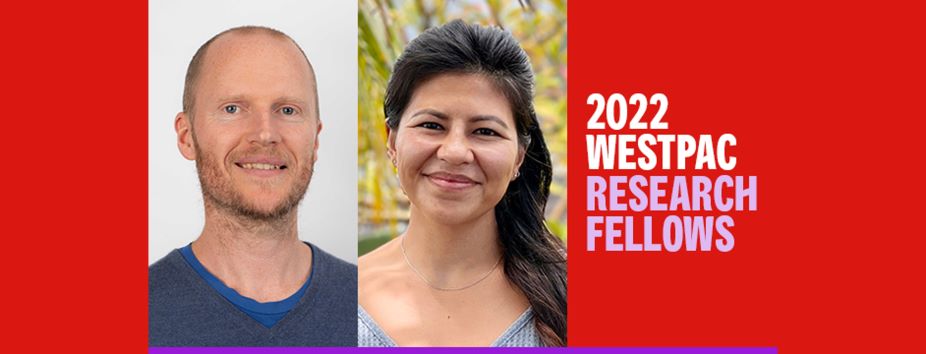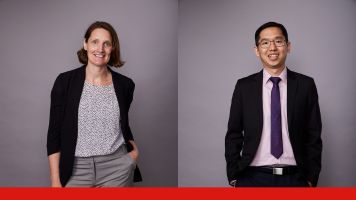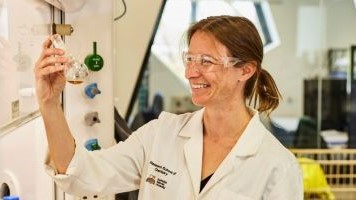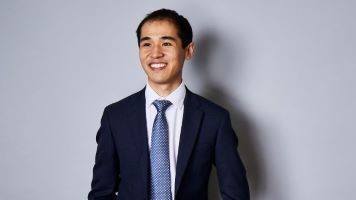
A researcher creating a shared understanding of future fire risk and an environmental scientist building the resilience of marine ecosystems have been awarded 2022 Westpac Research Fellowships with a combined value of almost $1 million to help advance their research over the next three years.
Dr Hamish Clarke, a Research Fellow at The University of Melbourne will receive $451,000 to support his studies into the impact of climate change on the critical drivers of bushfire. Working closely with fire managers and community members, his research is expected to deliver significant new capacity to predict and manage fire, and enable positive changes required for communities to coexist with bushfire in a warming world.
“My career goal is to bring science and society closer together. Studying bushfire and climate change has given me plenty of opportunities to work across disciplines and with industry, government and the public. I believe it is by tapping into this collective expertise and providing a holistic perspective on the nature of bushfire risk that we can collectively take sustainable and effective action,” says Dr Clarke.
Dr Shawna Foo, Research Fellow at The University of Sydney, will receive $542,000 to support her research to understand threats to coral reef existence and to develop effective management strategies in the face of global change.
“I’ve always been fascinated by animals surviving in extreme environments,” says Dr Foo. “With climate change threatening the existence of marine ecosystems, my overarching focus is understanding the potential of animals to adapt to ocean change, and to identify factors that influence resilience to climate stress at both a species and population level.”
“The Westpac Research Fellowship was co-created in partnership with Australia’s leading research universities to support the leadership and development of outstanding early career researchers and their ground-breaking research,” says Amy Lyden, Acting CEO Westpac Scholars Trust. “Our 2022 Westpac Research Fellows are testament to this.”
“Dr Clarke and Dr Foo are new generation researchers doing critical work to help communities and environmental ecosystems adapt and respond to a changing climate.”
The Fellowship focuses on the specific needs of early career researchers, covering their salary and research costs, in addition to professional development and global experiences. This year’s fellowships are co-funded in partnership with The University of Melbourne and The University of Sydney.
In addition to funding and support, Dr Clarke and Dr Foo will become lifelong members of the program’s alumni, the Westpac 100 Scholars Network (W100). Growing by up to 100 Westpac Scholars every year, the W100 brings together people from all walks of life and provides access to professional development and inspiring networks.
“The Westpac Research Fellowship is the logical next step for me, providing leadership development opportunities and diverse global networks which will help me to catalyse important advances in bushfire risk management and the public understanding of risk,” says Dr Clarke.
To learn more about our 2022 Westpac Research Fellows and other Westpac Scholars visit our Scholars Directory for individual bios.
Published 14 March 2022
Related articles
Which scholarship?
Inspired to apply for Westpac Scholars?
Read on to find out more about our scholarship programs:
- Westpac Asian Exchange Scholarship
- Westpac Young Technologists Scholarship
- Westpac Social Change Fellowship
- Westpac Future Leaders Scholarship
- Westpac Research Fellowship
Scholarship enquiries and updates
For scholarship enquiries email:
westpacscholars@westpac.com.au
Connect with us
Ready to apply?
Find out more
- Funding Guidelines
- Supporting Document Templates


